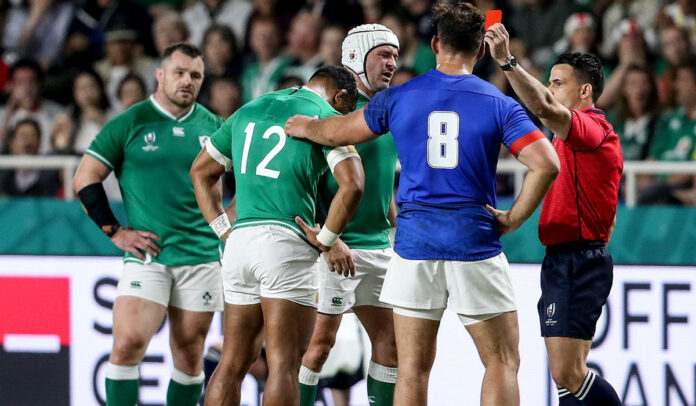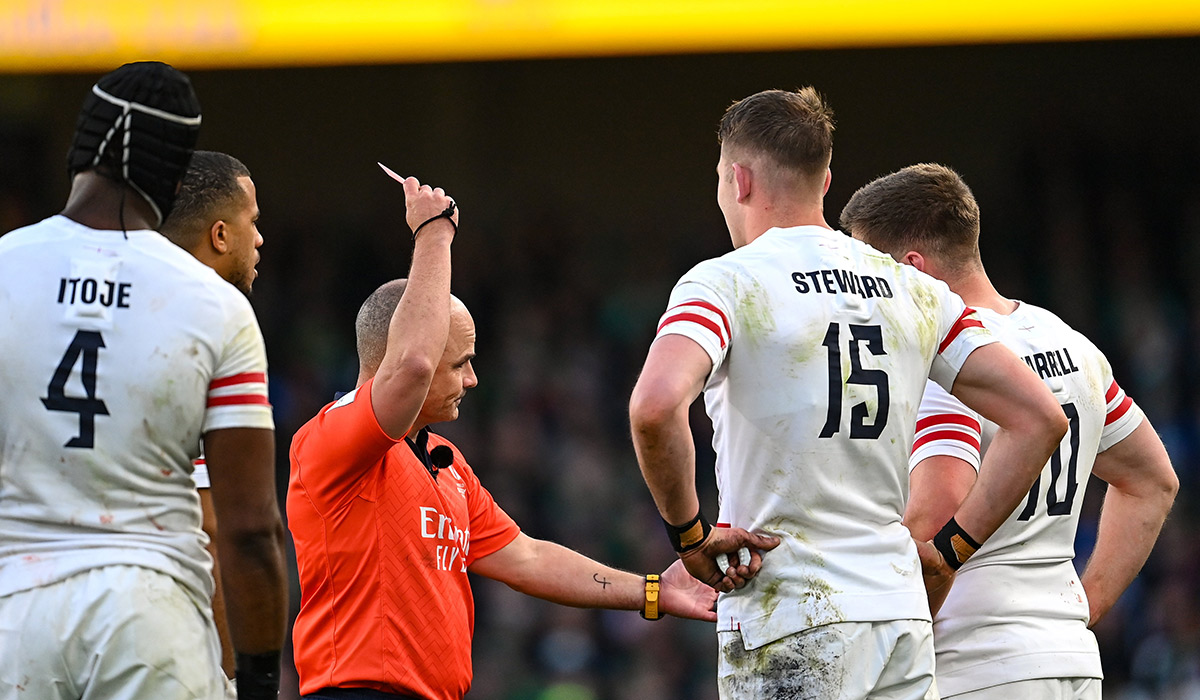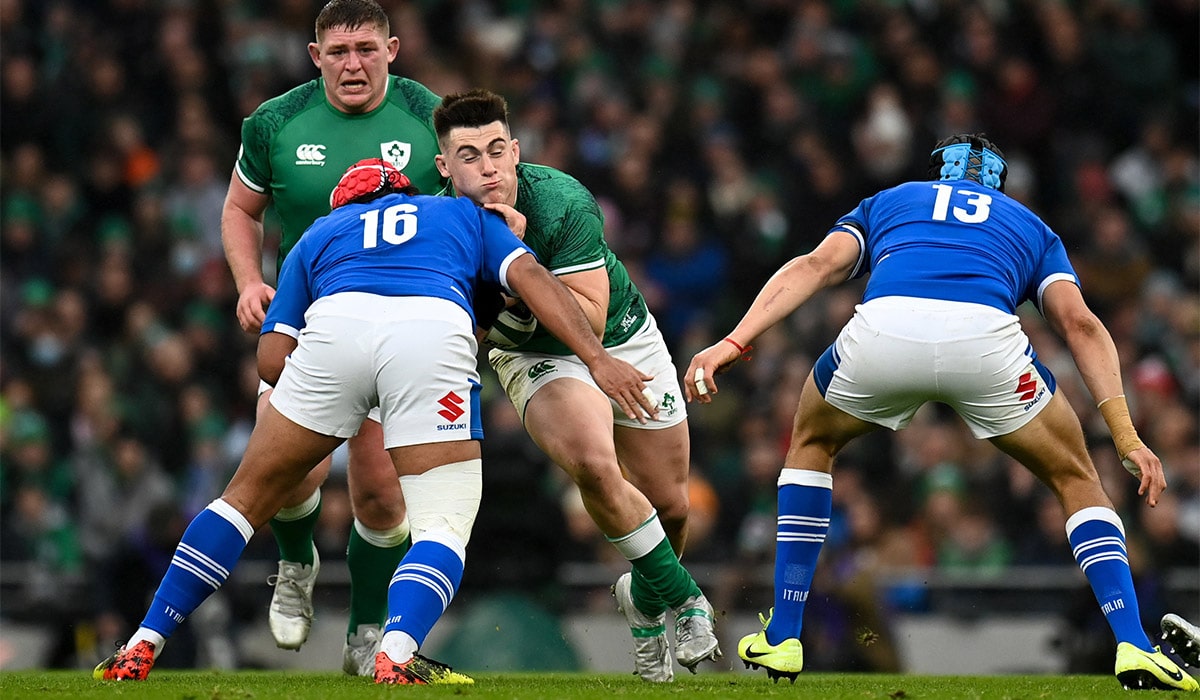
[ad_1]
Objections are growing in the professional game towards the permanent adoption of the divisive ’20-minute red card’ trial, which is set to be rolled out in next month’s Autumn Nations Series.
After the amended red card was road-tested during the U20 World Cup and Rugby Championship, the northern hemisphere will experience the amended ruling for the first time during the autumn internationals.
Bulls head coach Jake White added his voice to those questioning the wisdom of the decision on safety grounds after the IRFU followed in the footsteps of the French Rugby Federation by criticising the new measure put forward by World Rugby authorities.
Sam Cane of New Zealand goes off after receiving a yellow card which later became a red card during the Rugby World Cup France 2023 Gold Final match between New Zealand and South Africa at Stade de France on October 28, 2023 in Paris, France. Pic: Julian Finney – World Rugby/World Rugby via Getty Images
Irish rugby chiefs said World Rugby did not report 20-minute red cards replacing permanent red cards entirely and did welcome the retention of the more severe sanction throughout the November series.
The controversial new trial will give referees the option to show a ’20-minute red card’, meaning the offending team will still lose a player for the rest of the match in case of ‘deliberate and dangerous. foul play’.
However, technical offences, such as accidental head contact, can now be punished with a player being sent off, but replaced by a team-mate off the bench after 20 minutes.
 Freddie Steward is shown a red card by referee Jaco Peyper during the Six Nations Rugby Championship match between Ireland and England. Pic: Ramsey Cardy/Sportsfile
Freddie Steward is shown a red card by referee Jaco Peyper during the Six Nations Rugby Championship match between Ireland and England. Pic: Ramsey Cardy/Sportsfile
The Six Nations governing body stated that this new measure can ‘simplify the game in key areas’ but it is already being met with firm opposition by prominent coaches.
White has said he was ‘not a fan’ while La Rochelle boss Ronan O’Gara branded the law as nonsense in recent days.
‘I don’t see where it fits into the game,’ the former Munster and Ireland out-half told Off The Ball.
‘Especially for player safety, we could be re-entering dangerous territory.’
There is bemusement among coaches and players as to why World Rugby is implementing such a measure now.
 Dan Sheehan of Ireland is tackled by Epalahame Faiva of Italy resulting in a red card during the Guinness Six Nations Rugby Championship match between Ireland and Italy at the Aviva Stadium in Dublin. Pic: Harry Murphy/Sportsfile
Dan Sheehan of Ireland is tackled by Epalahame Faiva of Italy resulting in a red card during the Guinness Six Nations Rugby Championship match between Ireland and Italy at the Aviva Stadium in Dublin. Pic: Harry Murphy/Sportsfile
In the climate of concussion and the devastating, long-term consequences of repeated head injuries, rugby has adopted a hardline stance on dangerous tackles and acts of foul play.
The high-tackle framework has been in place since 2021 and there has generally been an acceptance that it has had a positive impact on the game.
Now, there has suddenly been a shift to soften the sanction of a sending off. It is understood that the New Zealand and Australian unions have been lobbying for such a shift in recent years.
The All Blacks were forced to play most of the 2023 World Cup final with 14 players after flanker Sam Cane was sent off in the 27th minute for making head contact with Springbok centre Jesse Kriel.
As it stands, Ireland will experience this trial for the first time when they meet New Zealand at the Aviva Stadium on November 8.
The possibility of the 20-minute version becoming the only red card punishment is to be discussed at a World Rugby meeting on November 14.
[ad_2]
Copyright for syndicated content belongs to the linked Source link

